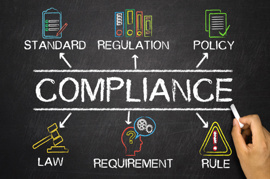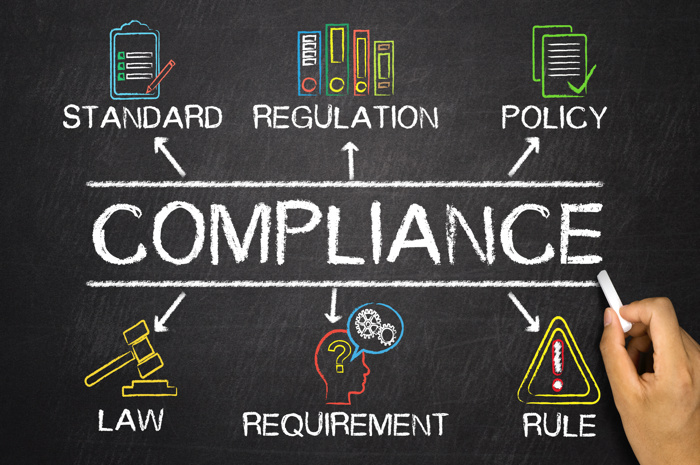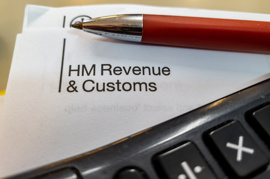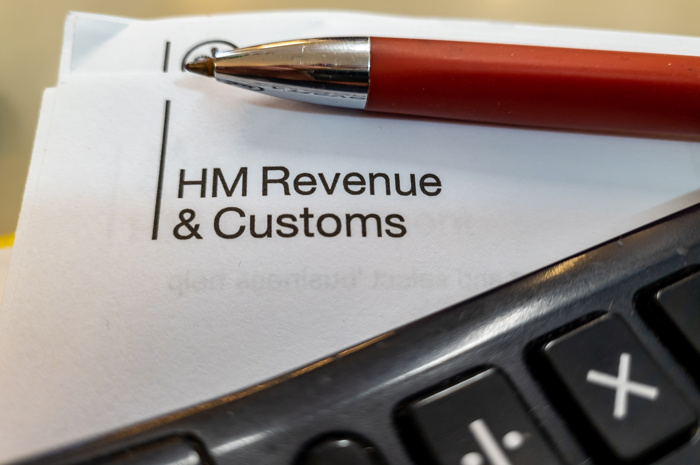What Does FRS Mean?
FRS is an acronym for the Financial Reporting Standards which FRS 102 & 105 fall under with respect to filing Annual Accounts for Small and Micro companies. The FRS are sets of principles which are provided by the Financial Reporting Council (FRC) to simplify the preparation of financial reports, as well as ensuring that the users of annual accounts receive comprehensive reports that contain accurate information which is proportionate to the size and complexity of the company.
These standards regulate the types of information as well as the amounts that must be provided to the users of financial statements stated by the legislation within the Companies Act 2006, requiring financial statements to give a true and fair view of:
- The Assets, Liabilities and Financial Position of the company and where necessary the group at the end of the reporting period
- The Profit or Loss of the company and where necessary the group for the reporting period
The FRC states that:
"The whole essence of accounting standards is to provide for recognition, measurement, presentation and disclosure for specific aspects of financial reporting in a way that reflects economic reality and hence provides a true and fair view"
Who Files Using FRS 105?
FRS 105 are the reporting standards for annual accounts for Micro Entities. An entity would be classified as Micro if it meets two of the following criteria:
- It had a turnover of less than £632,000 within the reporting period
- It had £316,000 or less on its Balance Sheet at the end of the reporting period
- It had 10 or fewer employees on average throughout the reporting period
Note Micro Company thresholds due to rise for accounting periods starting on or after 6th April 2025: Turnover of £1 million or less, Balance sheet total of £500,000 or less
Assuming your company is classed as a Micro Entity, it is eligible to prepare and file its annual accounts using FRS 105. The FRS 105 reporting standards are the most simplified reporting standards provided by the Financial Reporting Council.
There are certain entities which are not allowed to prepare their accounts using FRS 105, these are:
- Charitable Companies
- Financial Institutions
- Parent Companies that prepare group accounts
- Subsidiaries that are fully consolidated in group accounts
Who Files Using FRS 102?
The FRS 102 reporting standards must be adopted by any entity that qualifies as a Small Entity by meeting at least 2 of the following criteria:
- It had a maximum turnover of £10,200,000
- It had a maximum of £5,100,000 on its Balance Sheet at the end of the reporting period
- It had less than 50 employees throughout the reporting period
Note Small Company thresholds due to rise for accounting periods starting on or after6th April 2025: Turnover of £15 million or less, Balance sheet total of £7.5 million or less
Note: If a company previously compiled its annual accounts under FRS 105 and has since exceeded the financial limits for two consecutive years, it would no longer qualify for FRS 105 and would instead file accounts as a small company under FRS 102.
Differences Between FRS 102 & 105
Most Companies initially file their annual accounts as a Micro Entity under FRS 105, eventually progressing after several years of strong growth to filing as a Small Entity under FRS 102. When transitioning from FRS 105 to FRS 102 there are several changes to the reporting standards that small companies need to be aware of, which can be found in the table below:
Area of Accounts | FRS 105 | FRS 102 |
| Borrowing and Development Costs | Under FRS 105 the capitalisation of borrowing costs and development costs are not allowed. Instead, these transactions should be treated as an expense within the Profit & Loss for the period to which they relate | Assuming that the specific conditions are met, these costs can be capitalised (included on the Balance sheet as opposed to being included as an expense on the Profit & Loss) |
| Deferred Taxation | When filing under FRS 105 entities are not permitted to recognise deferred tax | FRS 102 allows entities to record a deferred tax asset or tax liability on its Balance Sheet in order to reflect any tax due to the company or any tax to be paid by the company |
| Financial Instruments | By adopting FRS 105, there is no distinction between a 'basic' and an 'other' financial instrument. All should be recognised at cost (typically the transaction price) Then the revaluation or measurement of said financial instruments at fair value is not permitted by FRS 105 | 'Basic' financial instruments are allowed to be measured at their cost minus amortisation. A 'Basic' instrument is made up of the expected Balance Sheet items, for example, cash, trade and other accounts receivable and payable. 'Other' financial instruments should be recognised at their fair value and any changes should be disclosed in the Profit & Loss. The 'Other' financial instruments being referred to are more complex items that are likely to be found in larger companies, for example, derivatives like options and futures contracts. |
| Government Grants | All government grants are required to be accounted for using the accrual method | Under FRS 102 the entity can decide whether it recognises the grant either by using the accrual model or performance model. |
| Investment Properties | An investment property is measured at it cost after subtracting depreciation and any impairments | When a company has an investment property under FRS 102 it should be revalued in each accounting period and any changes should be recognised in the Profit & Loss |
| Intangible Assets | Any intangible assets are recognised and measured at cost minus any depreciation and impairments where applicable Intangible assets are not allowed to be revalued under FRS 105 | Using FRS 102, an intangible asset can be measured at its cost minus depreciation and impairments Although, with FRS 102 a company can adopt a revaluation policy for any selected intangible assets of the same class |
| Foreign Exchange Forward Contracts | The requirements of FRS 105 states that when there is a foreign exchange forward contract it must be measure at the rate specified within the contract. | The transaction can be recognised as a financial instrument on the Balance Sheet that has been measured at fair value. The associated creditor or debtor can then be translated using the end of year exchange rates In particular instances, hedge accounting can be applied |
Other Fixed Assets | The Micro reporting standards will not allow any fixed assets to be revalued All fixed assets should be recognised at cost minus depreciation and impairments where applicable | The FRS 102 allows for fixed assets to be valued at cost minus depreciation and impairments but it also allows for a revaluation policy to be implemented for assets in a shared class |
Find out more about Annual Accounts & Tax Filing
Hopefully this article has answered your questions about the differences between filing annual accounts using FRS 102 & 105. If you need more information about filing corporation tax, send us a message or dive into our Knowledge Base to read more articles like this one to help your business thrive.
If you need to file a Corporation Tax Return, you can use the filing templates directly on our platform with a free account. Get started or visit Easy Digital Filing to find out more.























